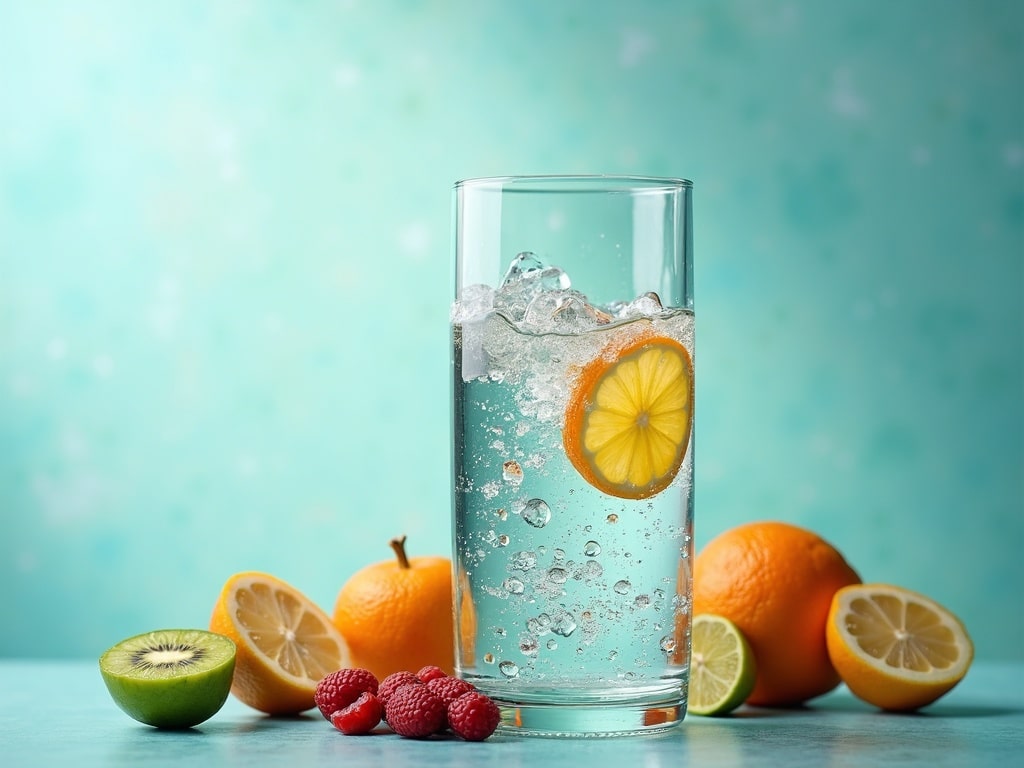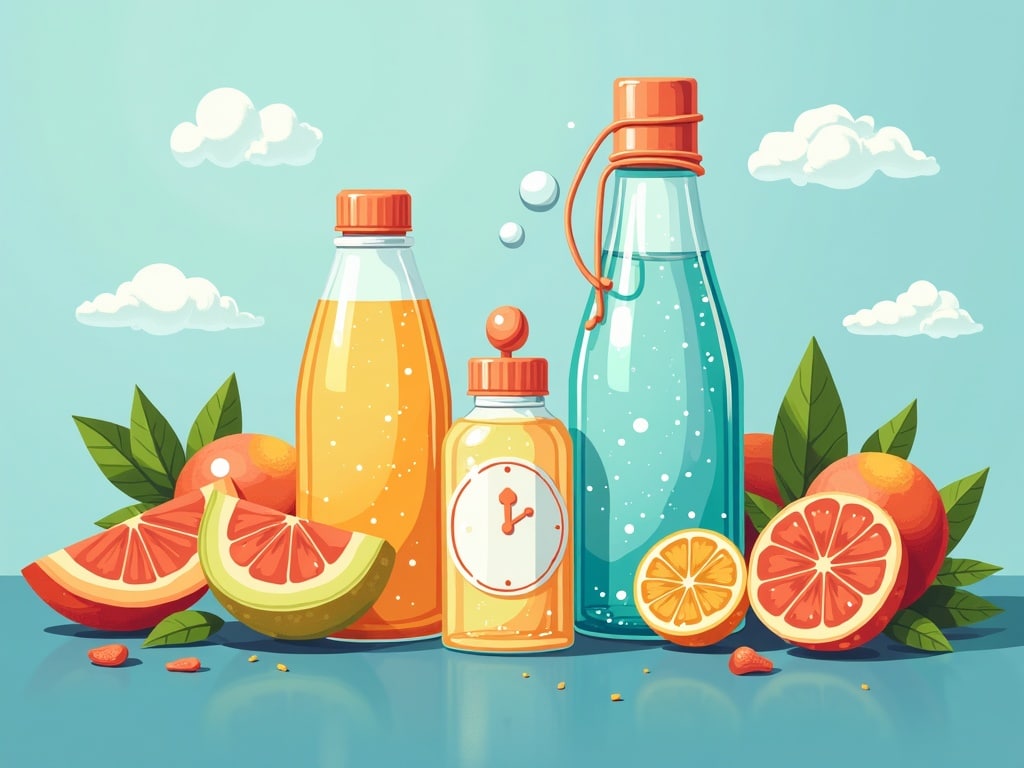How Hydration Helps With Weight Loss: The Complete Guide
Ever feel like you’re doing everything right – hitting the gym, watching your portions – but the scale still won't budge? The answer might be simpler than you think: water. Yes, that clear, calorie-free liquid that’s readily available can be a surprisingly powerful ally in your weight loss journey. But how exactly does hydration help with weight loss? Let's dive deep into the science, strategies, and surprising benefits of staying properly hydrated as you pursue your weight-loss goals.
The Science Behind Water and Weight Loss
It’s easy to dismiss the idea that water can significantly impact weight loss. But numerous studies and scientific principles highlight the profound connection between hydration and a healthy metabolism. Dehydration silently sabotages your best efforts.
Water as a Natural Appetite Suppressant
One of the most significant ways hydration aids weight loss is by acting as a natural appetite suppressant. Water can create a feeling of fullness, helping you consume fewer calories throughout the day. Studies have shown that drinking water before meals can lead to significant reductions in calorie intake.
Think of it this way: two glasses of water before lunch can take the edge off your hunger, potentially leading you to choose a smaller portion or opt for a lighter meal. This effect is particularly noticeable when water replaces sugary drinks, which contribute empty calories and can actually stimulate appetite.
Boosting Metabolism and Burning Calories
Water plays a crucial role in metabolic processes. Your body needs water to burn calories efficiently. Dehydration can slow down your metabolism, hindering your weight loss efforts.
Research indicates that drinking water can temporarily increase your resting energy expenditure – the number of calories you burn at rest. This effect, known as water-induced thermogenesis, might seem small, but over time, it can contribute to significant weight loss. Even a slight increase in metabolic rate can make a difference in the long run.
Water and Exercise Performance
If you're exercising to lose weight (and you should be!), staying hydrated is even more critical. Dehydration can impair physical performance, making your workouts less effective.
Water helps transport nutrients to your muscles and lubricates your joints, allowing you to push harder and longer during exercise. It also helps regulate your body temperature, preventing overheating and fatigue. When you're properly hydrated, you're more likely to stick to your exercise routine and see better results.
The Role of Water in Digestion and Waste Removal
Proper hydration is essential for healthy digestion and the efficient removal of waste products from your body. Water helps break down food, allowing your body to absorb nutrients effectively. It also helps prevent constipation, a common issue that can lead to bloating and discomfort, potentially hindering weight loss efforts and your body's ability to eliminate toxins efficiently.
Practical Strategies for Hydration and Weight Loss
Now that you understand the science behind hydration and weight loss, let's explore practical strategies for incorporating more water into your daily routine. It's not just about drinking water when you feel thirsty; it's about making hydration a conscious and consistent habit.
Calculate Your Daily Water Needs
The common recommendation of eight glasses of water a day is a good starting point, but your individual needs may vary depending on your activity level, climate, and overall health. A more accurate way to estimate your daily water needs is to use a simple formula:
Weight in pounds / 2 = ounces of water per day
For example, if you weigh 150 pounds, you should aim to drink 75 ounces of water per day. If you exercise regularly or live in a hot climate, you may need to increase your intake.
Tips for Staying Hydrated Throughout the Day
**Start your day with water:Drink a glass of water as soon as you wake up to kickstart your metabolism and rehydrate your body after sleep.
**Carry a water bottle:Keep a reusable water bottle with you at all times and sip on it throughout the day. This serves as a constant reminder to stay hydrated.
**Set reminders:Use your smartphone or a water tracking app to set reminders to drink water at regular intervals.
**Drink water before meals:As mentioned earlier, drinking water before meals can help you feel fuller and eat less.
**Infuse your water:If you find plain water boring, try infusing it with fruits, vegetables, or herbs. Cucumber, lemon, mint, and berries are all great options.
**Eat water-rich foods:Fruits and vegetables like watermelon, cucumbers, and spinach have high water content and can contribute to your overall hydration.
**Listen to your body:Pay attention to your body's signals and drink water whenever you feel thirsty.
**Hydrate after exercise:Replenish fluids lost through sweat by drinking water or a sports drink after working out.

Beyond Water: Other Hydrating Beverages and Foods
While water should be your primary source of hydration, other beverages and foods can also contribute to your daily fluid intake.
**Herbal teas:Unsweetened herbal teas like green tea and chamomile tea are excellent sources of hydration and offer additional health benefits. Green tea, in particular, has been shown to boost metabolism and promote weight loss.
**Broth-based soups:Soups made with broth are hydrating and can be a filling and nutritious meal option.
**Fruits and vegetables:As mentioned earlier, fruits and vegetables like watermelon, strawberries, spinach, and lettuce have high water content.
**Coconut water:Coconut water is a natural electrolyte drink that can help replenish fluids and electrolytes lost through sweat.
The Downside of Dehydration: What Happens When You Don't Drink Enough?
The effects of dehydration extend far beyond thirst. Chronic dehydration can lead to a range of health problems, including:
**Fatigue:Dehydration can cause fatigue and reduce energy levels, making it harder to stick to your exercise routine.
**Headaches:Headaches are a common symptom of dehydration.
**Constipation:As mentioned earlier, dehydration can lead to constipation, which can hinder weight loss efforts.
**Muscle cramps:Dehydration can cause muscle cramps, especially during exercise.
**Kidney problems:Chronic dehydration can increase the risk of kidney stones and other kidney problems.
**Impaired cognitive function:Dehydration can impair cognitive function, affecting concentration and memory.
Recognizing the signs of dehydration is crucial for maintaining your health and supporting your weight loss goals. Pay attention to symptoms like thirst, dry mouth, dark urine, fatigue, and headaches.
Debunking Hydration Myths
There are several misconceptions about hydration and weight loss. Let's debunk some common myths:
**Myth:You can only hydrate with water.
**Fact:While water is the best source of hydration, other beverages and foods can also contribute to your daily fluid intake.
**Myth:You should only drink water when you're thirsty.
**Fact:Thirst is a sign that you're already slightly dehydrated. It's important to drink water regularly throughout the day, even when you don't feel thirsty.
**Myth:Drinking too much water is harmful.
**Fact:While it's possible to drink too much water, it's rare. Overhydration, or hyponatremia, is more likely to occur in athletes who drink excessive amounts of water during prolonged exercise.
**Myth:All beverages are equally hydrating.
**Fact:Sugary drinks like soda and juice can actually dehydrate you and contribute to weight gain. Stick to water, herbal teas, and other unsweetened beverages.
Hydration and Weight Loss: Real-Life Examples
Still not convinced about the power of hydration? Consider these real-life examples:
**Sarah, 35, lost 20 pounds in six months by simply increasing her water intake.She started drinking a glass of water before each meal and carried a water bottle with her throughout the day. She noticed that she felt fuller and ate less, leading to significant weight loss.
**Mark, 42, improved his exercise performance by staying properly hydrated.He used to experience muscle cramps and fatigue during his workouts. After increasing his water intake, he found that he could push harder and longer, leading to better results.
**Emily, 28, relieved her constipation by drinking more water.She had been struggling with constipation for years. After increasing her water intake, she found that her bowel movements became more regular.
These are just a few examples of how hydration can positively impact weight loss and overall health. By making hydration a priority, you can unlock your body's full potential and achieve your goals.
The Bottom Line: Make Hydration a Cornerstone of Your Weight Loss Journey
Hydration is not a magic bullet for weight loss, but it’s a powerful tool that can support your efforts and improve your overall health. By staying properly hydrated, you can suppress your appetite, boost your metabolism, improve your exercise performance, and support healthy digestion.
Make hydration a conscious and consistent habit by calculating your daily water needs, carrying a water bottle with you, setting reminders, and incorporating water-rich foods into your diet and . Remember, even small changes can make a big difference. Start today and experience the transformative power of hydration.
So, grab a glass of water and toast to a healthier, happier you! Your body will thank you for it, and your weight loss goals will be within closer reach than ever before.

